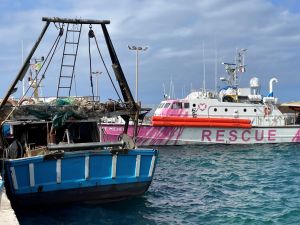research outputs

New book chapter: “Sfruttamento e vulnerabilità delle donne migranti nelle campagne siciliane: il caso di Vittoria”
About 230,000 men and women workers are particularly vulnerable and, therefore, subject to exploitation and caporalato phenomena, including forced labour, in Italy. Beyond labour exploitation and caporalato, in the agro-food sector relevant weakness in labour relations are raising, due to misleading contracts, sometimes instrumentally drawn up to deceive workers, both Italian and foreign. An organised criminal criminal system undermining people’s fundamental rights as laid down in the Italian Constitution, which is also propitious to the establishment of mafias.
A particular perspective is at the heart of each of the seven essays that make up the text: what local authorities have done, are doing and can do.
Three practical experiences are recounted by the direct protagonists as good practices to refer to.
Among the contributions, of particular note is the chapter written by Federica Cabras and Monica Massari, ‘Exploitation and vulnerability of migrant women in the Sicilian countryside: the case of Vittoria’, which provides a first feedback of the work carried out by the University of Milan research unit, on the Rural Area.

New book: “Crocevia Mediterraneo” (Eleuthera, 2023)
For the first time, a boat of social scientists traveled the migration routes of the central Mediterranean, stopping at the main hubs of European border control-Pantelleria, Lampedusa, Linosa, Malta. An unprecedented logbook that offers us a radically new look at the necropolitic violence of borders and the irreducible drive for mobility.
Eds.: Jacopo Anderlini and Enrico Fravega.
Essays by: G. Agolino, D. Cangelosi, A. Colombo, L. Daminelli, E. Fracassi, L. Giliberti, F. Goletti, D. Leonardi, A. Milotta, L. Queirolo Palmas, V. Pellegrino, F. Torre, V. Valenti

New article: “Trasformazioni Mediterranee. Migrazioni, incontri e barriere”
Enrico Fravega and Luca Queirolo Palmas published an article on n. 60 of “Dialoghi Mediterranei”, the scientific review of Istituto Euro Arabo.
Drawing on the ethnographic fieldwork carried out by both authors on board of a vessel cruising across the central Mediterranean Sea, they argue that instittutional interventions are characterized by an extreme ambivalence. On one hand they ensure the standardisation of service provision (welfare and security), on the other one, preventing any kind of contact between people on the move and local popoluation, hindering contacts not mediated by bureaucratic procedures, military uniforms, badges and identification codes. At the same time, even moments of celebration such as the Day of Remembrance and Reception (October 13) if on the one hand it fosters the development of a collective elaboration on the issue of reception, on the other hand, it contributes to a representation of migrant people almost only in victim terms; a figure devoid of agency, relegated to an imaginary in which the (necro)policies of securitization of borders play no role.

New: Approccio hotspot e habeas corpus. Profili costituzionali
An article regarding the so-called “hotspot approach” with a focus on respect for the habeas corpus of migrant persons present within it. Starting with the introduction of this approach by the European Commission through so-called soft law acts, the European regulatory framework will be traced. The main critical issues that have emerged from the transposition, in Italy, of this approach will be highlighted next. In particular, a) the shortcomings related to the failure to respect the principle of legality, although this was imposed by the constitutional rights involved, in the introduction of the discipline, operated through the adoption of acts of an administrative nature; b) the absence of a clear determination of the legal nature of the so-called crisis points, a lack that is not irrelevant in the implementation phase of this approach; c) the regulatory gaps in the first identification phase of the migrant person who has just landed, also with reference to the delicate hypotheses of detention for this purpose provided for by Art. 10-ter, Legislative Decree no. 286/1998 and by Art. 6, c. 3-bis, Legislative Decree no. 142/2015; d) the persistent and current violation of the constitutional rights of the migrant persons present inside the hotspots.